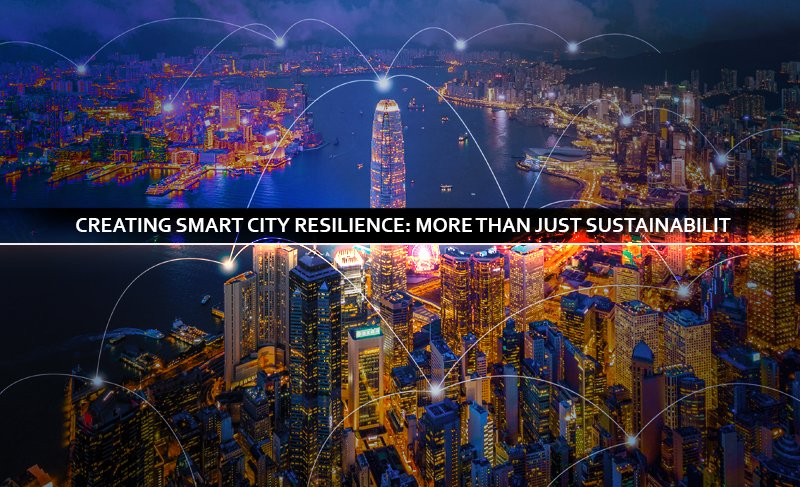
Creating Smart City Resilience – More Than Just Sustainability
“Smart Cities not only contribute to a rich and efficient living experience but also create a sustainable environmental footprint that contributes to the smooth implementation of smart city resilience. Leader Group’s Smart City Solutions utilize ICTs to deliver Smart city projects.
Smart City refers to a concept where the municipalities use information and communication technologies (ICTs) to increase operational efficiency; improve the quality of government services and citizen welfare, and add value to citizens’ lives.
ICT and modern technology are considered a vital aspect of the smart city concept, enabling government bodies and corporates to emphasize the importance of the people who operate the technology and contribute to the welfare of the communities.
However, with the rising importance of digital data and technology in the cities; the significance of resilience in the smart city discourse decreases, which hampers the overall purpose of a smart city.
However, as the smart cities’ projects are increasing, the ability to be resilient; especially when the technology fails due to man-made or natural disasters, is also increasing.
The potential of incorporating smart technologies into all the elements of a smart city project delivers a smooth implementation of a smart city.
From the transport infrastructure, water systems, and power supply to government services; smart cities are beginning to come to life in various forms as they increase their digital dependency; potential information, and communications technology (ICT).
Cities get smarter without a thorough understanding of cyber resilience; and digital crises could be more severe and disruption more sustained than ever before.
Smart technologies provide the local agencies with new tools for taking preventive measures; responding to emergencies, and planning for longer-term sustainability and growth.
Essential Elements to promote Smart City Resilience:
According to recently conducted research, the market value of Smart Cities will reach USD 800 Billion by 2026.
This magnanimous rise in the market value of smart city attributes to the rising need for urbanization and the implementation of smart city projects.
Factors such as the need for efficient management and utilization of resources; demand for fast and efficient transport; public safety concerns, and increasing demand for a healthy environment contribute to the value of Smart Cities.
Hiring Resilient Workforce:
Smart Cities’ resilience is defined as the ability of a city to handle the crises and adversities that arise due to calamities; both man-made and natural.
To promote a resilient smart city; employing workforce and resilience officers is imperative to build an effective strategy and examine how government agencies operate and design a strategy that adds to the city’s unique situation.
Tackling Cyber Threats:
Smart City projects deal with massive data; so it becomes essential to take care of the security breaches and cyber threats that might occur.
Every smart city project varies; and understanding the significance of unique cybersecurity threats to a particular city becomes essential to ensure that the city responds to them effectively.
For example; a city heavily reliant on bridges will face different resilience questions for its traffic systems and identifies plans for the levels of cybersecurity efforts and investments needed.
Prioritizing Services:
Since every smart city varies from each other; it becomes crucial for cities to classify and prioritize the essential services needed for the effective implementation of smart city projects.
Once the smart city information and data get compromised, damaged, or destroyed, it impacts the city’s ability to function dramatically.
Therefore, unique identification and prioritization of services ensure resilient and efficient smart city projects.
Leader Group is one such organization that helps corporates and government agencies to achieve smart city projects with utmost resilience and ease with its Smart City Solutions.
Its solutions range from traffic management and energy efficiency to e-governance; intelligent lighting systems, and smart healthcare by catering to smart city projects in the most efficient ways.
Also, recognizing IT concerns such as legacy infrastructure; data security, cybersecurity, and device connections allows authorities to embrace the Smart cities projects and promote resilience.
Conclusion:
With the changing times, the approach to smart cities, too, is changing. Gone are the days when government agencies and corporates only used to invest in efficient and sustainable solutions to promote innovative city projects.
The use of digital data and technology has resulted in increased investments in the Smart City projects that lead to effective collaboration among all stakeholders and add value to the citizens’ lives and communities.





